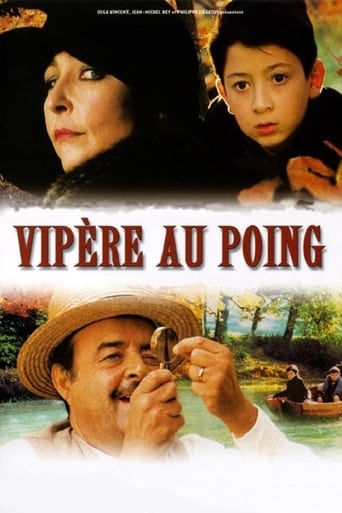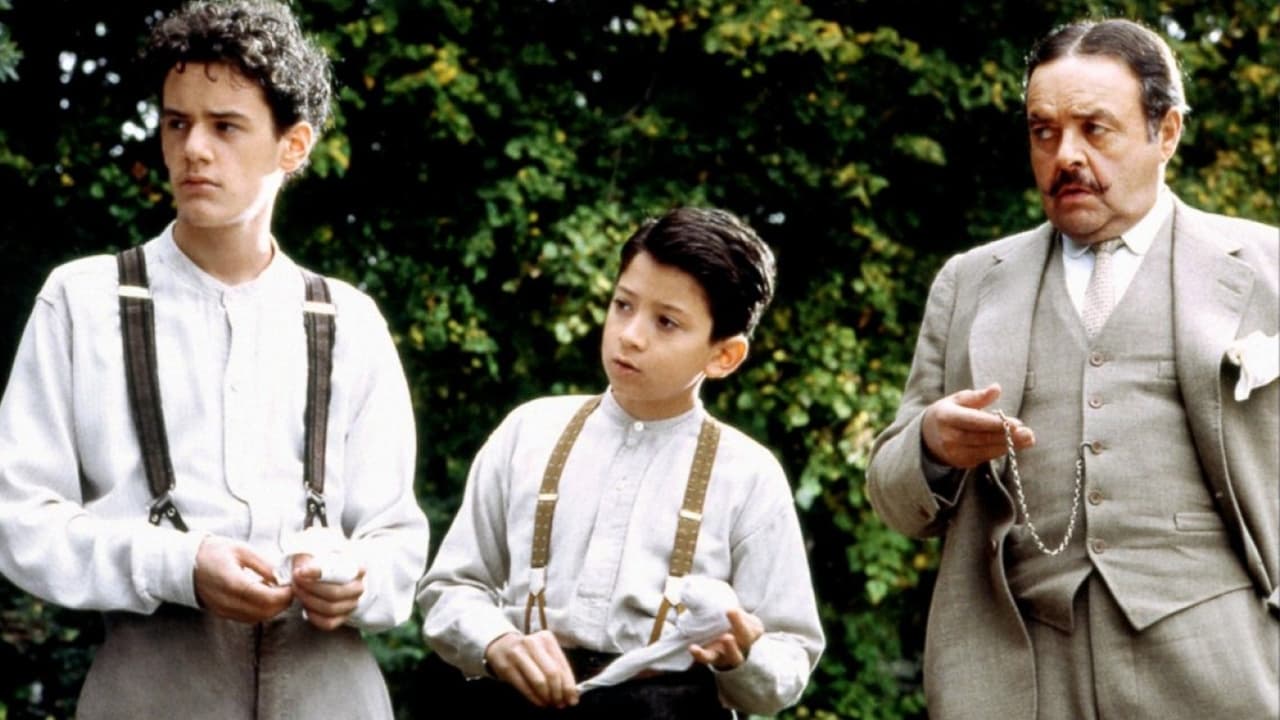JohnHowardReid
I went to a great deal of trouble to purchase "Viper in the Fist" for one reason only. I'm a great fan of Philippe de Broca. To my astonishment, this wonderful movie far surpassed my expectations. I was aware, of course, from the credits that the screenplay was based on an autobiographical novel concerning three young boys who had a particularly cruel mother. This viper-in-the-midst made Cinderella's stepmother seem like a fairy princess. I have never in all my life seen such a cruel woman. She was really vicious. Not only did she assault her children physically, but she hired other people (particularly a vicious priest) to assault them as well. She would even injure herself and then falsely claim she was actually injured by one of the boys. In a really terrifying scene, she took the boys to a hideous prison and threatened to have them incarcerated. But that was the least of her cruel measures. The ways and means by which she would undermine the young boys psychologically and belittle them were absolutely hair-raising.Anyway, here is the really incredible thing. Gradually, very gradually, due entirely to the magnificent performance of Catherine Frot who plays the chillingly vicious, cold-hearted woman, we begin to feel an empathy for her. Everyone hates her, naturally (except for her somewhat feeble-hearted husband, plus a succession of stupid, worldly-minded priests drawn from a book in which the original author's anti-Catholic bias is all too apparent). As I say, due entirely to Frot's performance, although she doesn't relax in her viciousness one iota – in fact she gets worse as the film progresses – I began to feel sorry for her. I cried when she died. Frot's characterization is certainly the greatest piece of acting I've ever seen on the screen – or stage either.Perhaps I should not have been surprised that this magnificent movie copped so many unfavorable reviews. Just about all the angry comments stemmed from either the changes that director Philippe de Broca and producer Olga Vincent made in their screenplay or the more charitable or less scathing interpretation of Madame Hervé-Bazin by the remarkably skillful Catherine Frot. Most of these critics compared this film unfavorably with the 1970 TV version, made with Bazin's approval. But these critics all seem to miss the point. De Brocca is not seeking comparisons. He is simply using the novel as a point of departure for an engrossing movie, pervaded with the fascinating (if terrifying) atmosphere, the viewpoints and long-extinct class distinctions, which were all bound up in the sights and sounds of the 1920s. An auteur should be judged by what he puts on the screen, not for his fidelity (or otherwise) to his source material.
Paul Sutton
This is an appallingly inept film made by a production team who did not respect or even understand the source novel. It is a book about hate and poverty and pain. The whole point of the novel is that the mother corrupts the boy into being as slyly evil as she is. The director plays this as comedy! complete with dropped trouser gags, crass blue lighting, and ubiquitous crashes of thunder to complete the farce. The whole is completely miscast by a team of poor players who have the subtlety of sledgehammers. The film is full of crass moments which aren't in the book, such as the dreadful wink-wink wraparound. The ending has been changed! and made happy! Watch instead the 1971 version, which is true to the spirit and the themes of the original novel, with perfect settings and a magnificent cast, playing with the right amount of seething resentment and ripening rage. The only flaw with the 1971 film is that it is too short.
cmia11
I love the book "Vipère Au poing" by Hervé Bazin, it is one of my favorite book. I think the adaptation is a pretty good film on its own but it lacked certain things. Catherine Frot played well her part but was not as cold and cruel in the film that Folcoche was in the book. The main difference is that it seems like the director of this film tries to make excuses for Folcoche's behavior. Important scenes were changed such as the last scene in the book was different from the same scene done in the film. Otherwise, the film was really well done. Jules Sitruk played Brasse-Bouillon fantastically. I loved the subtle references to Hervé Bazin's work. The music was very dramatic and I liked Brasse-Bouillon's voice-over. Overall, the movie was entertaining but the book is a lot better of course.
bruno-m-lagrange
Vipère au poing is a french novel telling the childhood of the author Hervé Bazin. As a young boy, Bazin was confronted with his mother who was a tyrant. She had imposed a very tough way of life in the family manor. For instance, during the winter, she had forbidden any heater in the bedrooms of her children. She was finally nicknamed by them "Follcoche" for Folle (mad) and Cochonne (pig). In 1971, a first film from the book had been shot for TV with Alice Sapritch playing the mother. At this time, the french viewers had been impressed by her acting.Thirty years later, there is this new adaptation by Philippe de Broca. If you forget Alice Sapritch and equally the book, you can be enjoyed by the movie. Admittedly, there are some flaws in the Broca film. You can discuss the acting or you can find the voice off unpleasant. But this film is nice, it's enjoyable to see it. And it is not boring at any moment. It's too rare in the french cinema nowadays, not to be underlined.


 AD
AD


